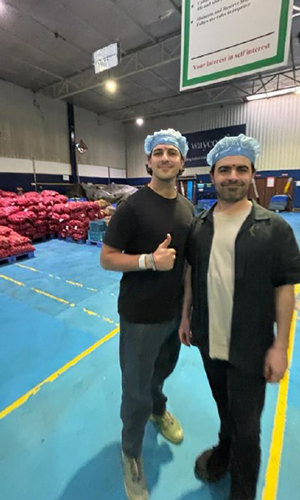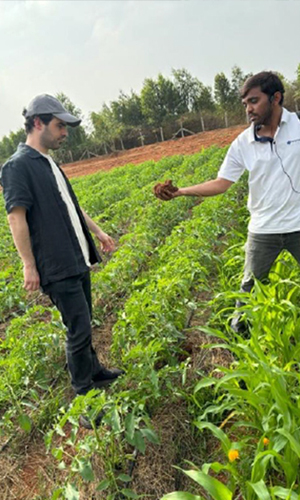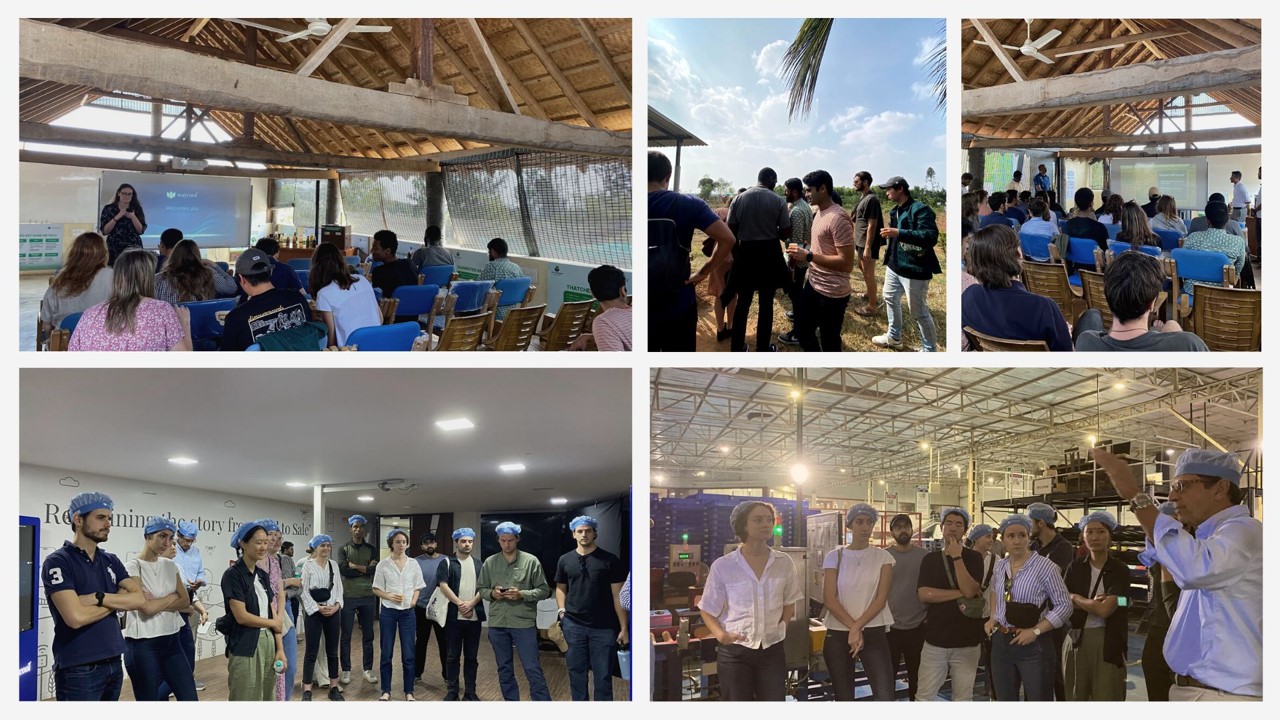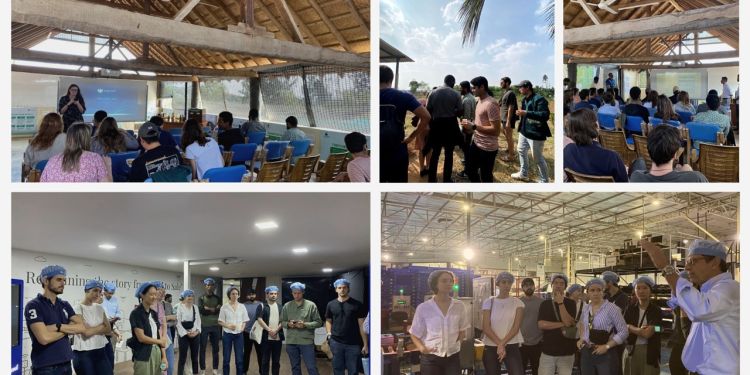Professor Vikram Gandhi’s Immersive Field Course (IFC) “Development while Decarbonizing: India’s Path to Net-Zero" delved into the critical aspect of decarbonization and sustainability goals amid India's rapid development. The course presented an opportunity for students to advance their knowledge of sustainability efforts, decarbonization, and net zero in the context of a broader development agenda. The class culminated in a series of site visits in January 2024 in Mumbai and Bangalore and this is one of 14 student essays that highlights their reflections on uncovering sustainable solutions across the country.
It is no surprise to most that human activities are taking a toll on the composition of Earth’s atmosphere. These changes have been linked to not only adverse reactions in environmental systems, but also significant health risks to the human body. What uniquely sets apart the environmental challenge to others that the globe is mired with is the fact that developing countries are hamstrung by the precedent set by the developed world. In this context, the IFC India class sought to explore how might growing economies find innovative solutions to their path to decarbonization. India’s position along its development curve presents a unique opportunity that more developed countries no longer have available.

Throughout course, our team focused on understanding the drivers of emissions within the agricultural industry. While the sector is often overlooked from an emissions standpoint, lowering its carbon intensity in India is key to unlocking a sustainable future. In 2019, agriculture generated 585 Mt CO2e, making it the third most contributing sector behind power generation and heavy industry. Nonetheless, the country’s idiosyncratic socio-economic, geographic, and political complexities pose significant challenges.
Prior to our immersion, our research pointed to a few central tensions that made it challenging for the agricultural sector to decarbonize. Firstly, land ownership is highly fragmented, despite farming being one of the largest employment sectors in the country. Naturally, smaller plots will have lower yield and, therefore, create income constraints for farmer’s livelihoods. Secondly, given such a large swath of the population depends on farming income, fertilizer is overused. Lastly, the lack of a robust logistical network increases market frictions throughout the value chain.
With these structural impediments in mind, we visited WayCool Foods and Pixxel, two innovative companies that are attempting to improve economic conditions for farmers, while lowering the carbon intensity of the agricultural sector. WayCool tackles the problem by working throughout the food value chain – creating better information flow from demand to supply points and educating farmers on regenerative farming practices. Pixxel on the other hand, approaches the issue from a more macro level, providing satellite imagery to various users, such as the Indian government, who can take advantage of Pixxel’s hyperspectral imagery to inform policymaking.
While both of the company visits confirmed our initial hypotheses on the state of the Indian agriculture sector, they also enlightened us to other broader themes that we believe are central to decarbonization challenge.
The first theme that became evident to us was the idea that solutions in this market need not be transformational, but instead adaptive to the current environment. WayCool’s mantra – "We are not disruptors, we are orchestrators" – embodies this approach to revolutionizing India's agricultural sector, which is respectful of the structural and cultural norms that still persist today. At the core of WayCool's strategy lies a deep understanding of the challenges plaguing Indian farmers – from fragmented supply chains to productivity hurdles and logistical complexities. Rather than approaching these issues in isolation, WayCool has devised a comprehensive platform aimed at bridging institutional gaps and fostering trust across the value chain. Their commitment to building sustainable relationships underscores a nuanced understanding of the intricacies within the agricultural domain.
Secondly, the funding model for both companies came into consideration as we reflected on our visits. While it is a catalyst for innovation, venture capital also poses a unique conundrum when it comes to sustainability endeavors. This dilemma was brought to light during our visits where the question arose: Is venture capital conducive to fostering sustainability in India's agricultural landscape? While both companies have made remarkable strides in technology and solutions, the pressure for immediate financial returns inherent in VC funding may inadvertently overshadow long-term sustainability initiatives. This prompts reflection on the need for exploring alternative funding avenues, such as collaborations with local conglomerates or government entities, to strike a balance between profitability and sustainability.

Another central debate revolved around what it meant to be a sustainability company. Pixxel, with its focus on earth observation technology, stands at the intersection of climate and space exploration. Despite skepticism regarding its mission-driven vision business model, Pixxel holds immense potential in catalyzing India's transition towards sustainable agriculture. One proposed solution involves engaging in pilot programs with farmer communities to demonstrate tangible benefits at the grassroots level, thereby solidifying its role in driving environmental stewardship.
Lastly, a crucial takeaway from these engagements is the importance of proactive engagement with policymakers in driving sustainable agricultural practices. While Pixxel's collaboration with the government showcases a step in the right direction, deeper integration with farming communities is imperative for meaningful impact. Conversely, WayCool's endeavors highlight the necessity of harmonious interactions with governmental bodies to navigate regulatory landscapes and accelerate decarbonization efforts.
In conclusion, the journey towards sustainability in India's agricultural sector demands a multifaceted approach that transcends traditional boundaries. By adopting a role as orchestrators of change, companies like WayCool and Pixxel exemplify the transformative potential of holistic solutions and collaborative partnerships. As we navigate the complexities of modern agriculture, let us heed the lessons learned from these visionary pioneers and pave the way towards a greener, more sustainable future.


